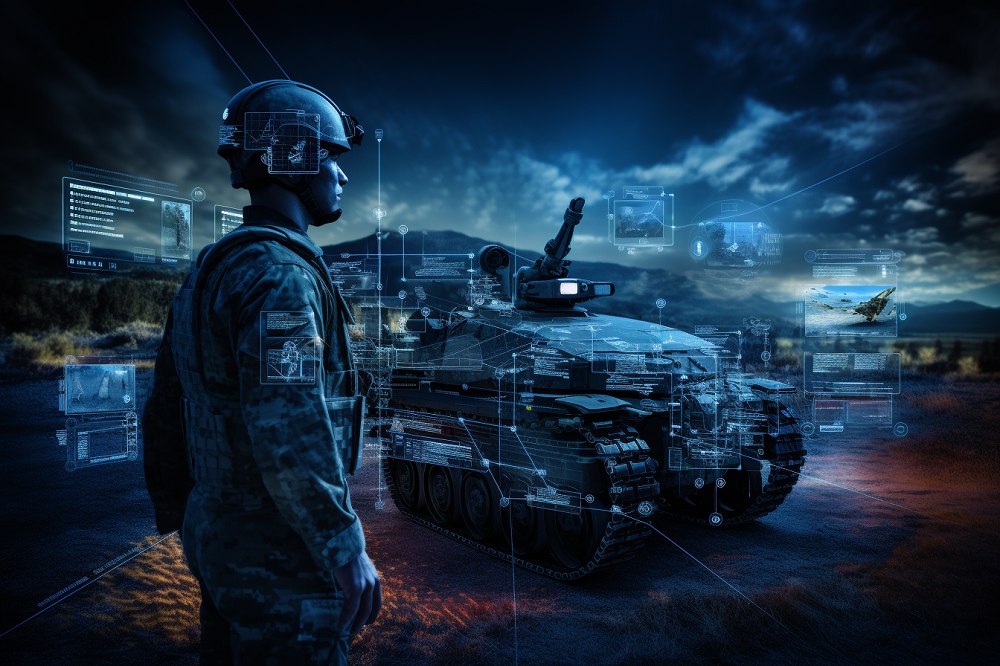Revolutionary advancements in military technology have recently taken place amid the ongoing war between Russia and Ukraine. The Ukrainian military is preparing to install state-of-the-art Artificial Intelligence (AI) into its Caesar artillery systems to increase combat capability.
This change is more than just an upgrade; it is reshaping the very nature of modern warfare. With the broader adoption of AI this year, there’s no mistaking the growing importance of AI in military strategy.
Revolutionary AI-based Artillery
While artificial intelligence has been part of military technology for some time, its incorporation into the Caesar artillery system is a major milestone. This enhanced system will utilize AI’s quick data analysis to facilitate split-second judgments and changes on the battlefield, making it renowned for precision and agility.
Under the leadership of Deputy Minister of Defense Ivan Gavrylyuk, senior Ukrainian military officials have emphasized the importance of these cutting-edge equipment to preserve a vital strategic advantage. This AI integration is more than just a technical update; it’s a strategic shift to keep up with the ever-evolving nature of battle, which is increasingly dominated by intelligence, speed, and precision.
AI Impact On Military Operations
Crucial discussions about the future of warfare are sparked by the incorporation of AI into military settings. However, this development raises practical and ethical concerns, demanding careful procedures and protections for responsible implementation.
The decision by Ukraine to upgrade its artillery with AI is in line with the worldwide trend of investment in autonomous, intelligent military systems. This shift in strategy reflects the realization that future conflicts will not be fought with conventional weapons alone but rather state-of-the-art technology that includes artificial intelligence and machine learning.
Global Military Perspectives on AI
AI-infused military equipment can completely alter conventional warfare; thus, nations all over the globe are investing heavily in it. Artificial intelligence (AI) integration into military systems requires a re-evaluation of long-standing military doctrines and tactics, in addition to promising benefits.
Beyond technology, this AI integration changes military operations in war zones. The responsibility and ethics of AI use will determine the future of military operations as more countries explore the technology’s military applications.
US And Japan Team Up On AI Integration In Unmanned Air Vehicles
A partnership between Japan and the United States to enhance artificial intelligence for UAVs reflects both countries’ dedication to technological innovation. The statement from Japan’s Acquisition, Technology, and Logistics Agency highlights their effort to harness the potential of artificial intelligence in crewless aerial vehicles, although it doesn’t say much.
The US and Japan made a joint declaration in December 2022, pledging help for the development of future aircraft. The recent partnership expands upon the previous commitment by the two countries.
In the future, crewless Collaborative Combat Aircraft will serve alongside modern fighter jets, changing the face of aerial combat. This ambitious proposal aligns with others like the US Navy’s F/A-XX and the US Air Force’s Next Generation Air Dominance (NGAD).
AI-Based Unmanned Partnership And A Push For Interoperability
With their superior skills and ability to work with human-crewed aircraft, these AI-powered UAVs are expected to be crucial in enabling efficient combat operations. US policymakers often appreciate partner nations’ ability to work together when developing future airpower.
Joint efforts in artificial intelligence research and the integration of crewless systems with human-crewed fighters align to improve the efficiency and effectiveness of air operations.
The joint AI research effort between the United States and Japan has achieved a giant step forward in developing air power combat. With the rapid advancement of AI, the future of military aviation could be greatly enhanced by incorporating it into UAVs.
Countries can strengthen their defense capabilities by developing UAVs that use artificial intelligence. This relationship exemplifies the commitment of both nations to technological innovation.
